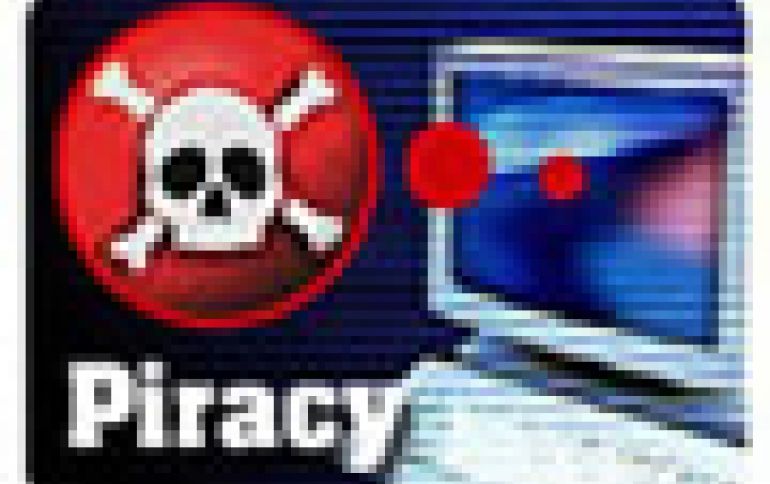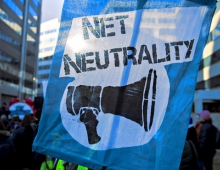
U.S. ISPs to Start Policing Copyrighted Traffic
Comcast, Time Warner, and Verizon are among the ISPs
preparing to implement a graduated response to piracy by
July, RIAA CEO says.
During a panel discussion in New York, Cary Sherman, CEO
of the Recording Industry Association of America, said
most of the participating ISPs would begin implementing
the program by July 1, according to a CNet report.
Today, many U.S. Internet Service Providers (ISPs) forward to subscribers notifications that they receive from content owners about alleged content theft - generally by email. Until now, however, there has been no common framework to effectively alert subscribers.
"Each ISP has to develop their infrastructure for automating the system," Sherman said. They need this "for establishing the database so they can keep track of repeat infringers, so they know that this is the first notice or the third notice. Every ISP has to do it differently depending on the architecture of its particular network. Some are nearing completion and others are a little further from completion."
Last year, Comcast, Cablevision, Verizon, Time Warner Cable and other bandwidth providers announced that they had agreed to adopt policies designed to discourage customers from illegally downloading music, movies and software.
Under this "Copyright Alert System" system, an ISP, in response to a notice from a copyright holder, will send an alert to a subscriber notifying the subscriber that his/her account may have been misused for online content theft, that content theft is illegal and a violation of the Terms of Service (TOS), Acceptable Use Policy (AUP) or other policies of their ISP, and that consequences could result from any such conduct.
Subsequent alerts may include notifications in the form of pop-ups or redirection to a special page displaying the alert. Failure to respond to these alerts will lead to additional steps designed to ensure that the account comes into compliance. These steps, referred to as "Mitigation Measures," might include, for example: temporary reductions of Internet speeds, redirection to a landing page until the subscriber contacts the ISP to discuss the matter or reviews and responds to some educational information about copyright, or other measures that the ISP may deem necessary to help resolve the matter. These steps will only be taken after multiple alerts and a failure by the subscriber to respond. This system consists of at least five alerts.
The program is unlike the so-called "three strikes" as it creates no new laws or formal legal procedures, nor does this system require account suspension or termination. In addition, ISPs will not provide their subscribers' names to rights' holders under this agreement, except pursuant to a properly issued subpoena or court order.
Today, many U.S. Internet Service Providers (ISPs) forward to subscribers notifications that they receive from content owners about alleged content theft - generally by email. Until now, however, there has been no common framework to effectively alert subscribers.
"Each ISP has to develop their infrastructure for automating the system," Sherman said. They need this "for establishing the database so they can keep track of repeat infringers, so they know that this is the first notice or the third notice. Every ISP has to do it differently depending on the architecture of its particular network. Some are nearing completion and others are a little further from completion."
Last year, Comcast, Cablevision, Verizon, Time Warner Cable and other bandwidth providers announced that they had agreed to adopt policies designed to discourage customers from illegally downloading music, movies and software.
Under this "Copyright Alert System" system, an ISP, in response to a notice from a copyright holder, will send an alert to a subscriber notifying the subscriber that his/her account may have been misused for online content theft, that content theft is illegal and a violation of the Terms of Service (TOS), Acceptable Use Policy (AUP) or other policies of their ISP, and that consequences could result from any such conduct.
Subsequent alerts may include notifications in the form of pop-ups or redirection to a special page displaying the alert. Failure to respond to these alerts will lead to additional steps designed to ensure that the account comes into compliance. These steps, referred to as "Mitigation Measures," might include, for example: temporary reductions of Internet speeds, redirection to a landing page until the subscriber contacts the ISP to discuss the matter or reviews and responds to some educational information about copyright, or other measures that the ISP may deem necessary to help resolve the matter. These steps will only be taken after multiple alerts and a failure by the subscriber to respond. This system consists of at least five alerts.
The program is unlike the so-called "three strikes" as it creates no new laws or formal legal procedures, nor does this system require account suspension or termination. In addition, ISPs will not provide their subscribers' names to rights' holders under this agreement, except pursuant to a properly issued subpoena or court order.





















